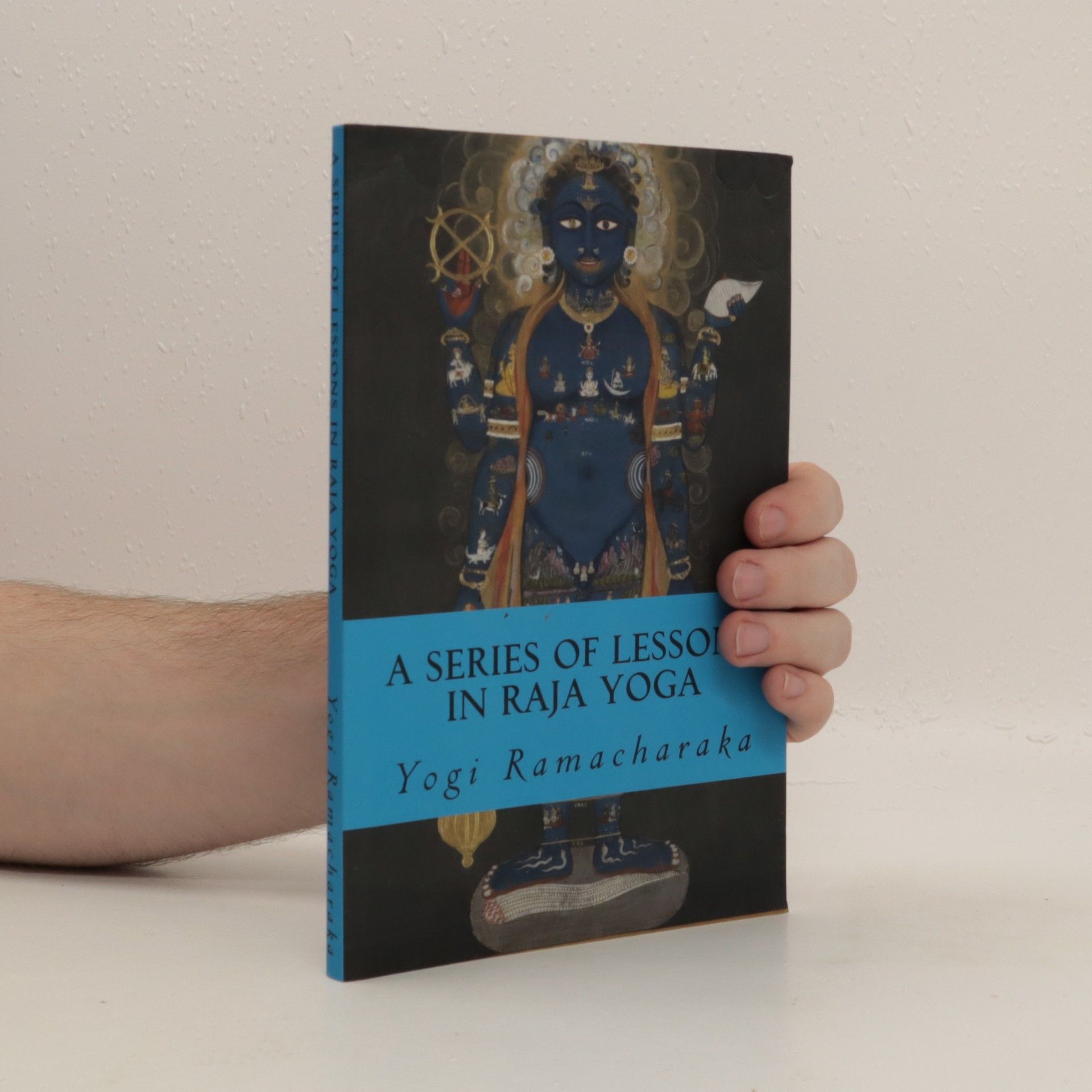Fourteen Lessons in Yogi Philosophy and Oriental Occultism
- 286 Seiten
- 11 Lesestunden
Fourteen Lessons in Yogi Philosophy and Oriental Occultism
Diese Serie bietet eine tiefgreifende Auseinandersetzung mit den vielfältigen Wegen des Yoga, von der physischen Körperkontrolle über die Entwicklung des Geistes bis hin zur spirituellen Erkenntnis. Jeder Band liefert umfassende Lektionen, die sich einer spezifischen Disziplin widmen, sei es Hatha Yoga für den Körper, Raja Yoga für den Geist, Bhakti Yoga für das Herz oder Gnani Yoga für den Intellekt. Sie dient als Leitfaden zur Selbstfindung, inneren Balance und zum Verständnis der universellen Lebensprinzipien. Die Reihe richtet sich an Leser, die durch alte Weisheiten tiefere Einblicke in sich selbst und die Welt suchen.






Fourteen Lessons in Yogi Philosophy and Oriental Occultism
In India, Candidates for Initiation into "Raja Yoga" receive lessons from Yogi Masters aimed at illuminating the nature of the Real Self and imparting secret knowledge for developing awareness of their true identity. They learn to discard misconceptions about themselves. Until the Candidate fully grasps this instruction and realizes their Actual Identity, further teachings are withheld. This is because understanding one's power and the Will, which is fundamental to "Raja Yoga," requires this awakening. The Yogi Masters identify two degrees of consciousness related to the Real Self. The first, "the Consciousness of the 'I'," allows the Candidate to recognize their existence as a true entity, independent of the physical body. The second, "the Consciousness of the 'I AM'," connects the individual to Universal Life and all existence. These levels of awareness unfold for those who pursue "The Path," sometimes suddenly, often gradually, and frequently aided by "Raja Yoga" practices. The accompanying affirmation encourages individuals to recognize their spiritual essence, engage with the world, and develop their senses, ultimately leading to the awakening of higher consciousness. The Universe is seen as a vast home to explore and understand.
This renowned book offers a clear presentation of Raja Yoga principles tailored for Western readers. Written by William Walker Atkinson in 1906, it features philosophical insights and mental exercises aimed at enhancing personal control, enjoyment, and the development of occult powers, guiding the soul toward spiritual illumination.
1904. What is Hatha Yoga? Yogis' regard for the physical body; Work of the divine Architect; Our friend, the vital force; Laboratory of the body; life fluid; Crematory of the system; Nourishment; Hunger vs. appetite; Prana absorption from food; About food; Irrigation of the body; Ashes of the system; Yogi breathing; Effect of correct breathing; Breathing exercises; Nostril breathing vs. mouth breathing; Little lives of the body; Control of the involuntary system; Pranic energy; Science of relaxation; Use of physical exercise; Yogi bath; Solar energy; Fresh air; Nature's sweet restorer, sleep; Regeneration; Mental attitude; Led by Spirit. This book has practical and excellent suggestions for promoting health in the body.
The Yogi Philosophy may be divided into several great branches, or fields. What is known as "Raja Yoga" deals with the Mind; its control; its development; its unfoldment, etc.
Focusing on the principles of Hatha Yoga, the book emphasizes a return to nature and the innate instincts that promote health. It encourages practitioners to "let go" and align their lives with natural conditions amidst modern artificiality. Rather than introducing a new doctrine, it invites readers to rediscover traditional methods and ways of living that have been overlooked. The text serves as a guide to reconnect with nature's wisdom for improved well-being.
Exploring the teachings of Gnani Yoga, this 1906 work by William Walker Atkinson delves into the philosophy of New Thought, emphasizing the power of mind over matter. Atkinson, a prominent figure in the New Age movement, shares insights on achieving wisdom and personal transformation through mental discipline. His lessons aim to guide readers in harnessing their mental potential, fostering a deeper understanding of self and the universe. The book serves as a practical manual for those seeking enlightenment and mastery over their thoughts.
Originally presented as monthly lessons from October 1904 to September 1905, this volume serves as a sequel to a prior series on Yogi Philosophy and Oriental Occultism. It comprises twelve lessons that delve deeper into the teachings and practices of yoga and Eastern mysticism, building on the foundational concepts introduced in the earlier work. This structured approach aims to enhance the reader's understanding and application of yogic principles.